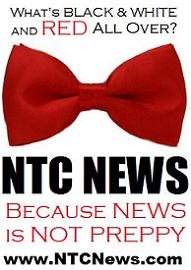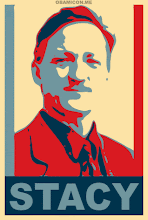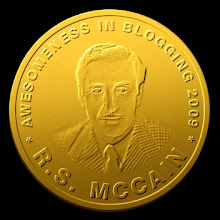Such strange beliefs! Such odd practices! How exotic they are!
Except, of course, that National Geographic writers do not go out of their way to make the aborigines of remote Amazonia appear ridiculous, which is the entire purpose of a New York Times editor assigning a writer to cover pro-abstinence students at Harvard.
For some mysterious reason, the sophisticated sensibilities of liberals are profoundly offended if anyone remains a virgin more than a few weeks past the onset of puberty. The notion that anyone might remain chaste long enough to become a university undergraduate -- oh, the horror of it all! One begins to suspect that liberals secretly wish school boards would make sexual intercourse a compulsory requirement for high-school graduation.
In my own collegiate career, I was neither an advocate nor a practicioner of moral virtue, but my youthful decadence was strictly freelance. There was no campus club dedicated to defending my right to sneak a half-drunk Delta Zeta into my dorm room after visiting hours.
Unlike the sexualized 21st-century campus, universities back then did not have an official sexual dogma and there was no propaganda on behalf of any particular sexual group or preference -- unless you counted the marching band's high-kicking drill team as poster girls for heterosexuality.
I was part of the last cohort to matriculate before American colleges began crowding the calendar with such sexual themes as Herpes Awareness Week and National Dildo Day. That was before freshman orientation involved distribution of free condoms and discussion groups designed to convince 18-year-olds that, if they did not arrive on campus as hateful homophobic bigots, they should probably go ahead and "come out" as gay.
If students at Harvard nowadays feel compelled to organize a pro-abstinence group, it can only be because the atmosphere at Harvard is pervasively anti-abstinence, and the virgins feel like a besieged minority (and, given the notorious promiscuity* of Harvard girls, virgins surely must be few indeed in Cambridge).
Harvard is a mighty bastion of liberalism, so it is not at all surprising to discover that liberalism's contempt for pre-marital chastity is as entrenched at Harvard as it is at the New York Times.
What mystifies me is why no one ever thinks to ask the liberals, "What's it to you?" I mean, what is it about a Harvard pro-abstinence club that liberals find so threatening? Why would the New York Times commission a 4,800-word article on this dangerous phenomenon?
This isn't about abstinence education in public schools. These are Harvard students, arguably the most elite young brains in America. One presumes that kids with near-perfect SAT scores and 4.0 GPAs are smart enough to know the birds-and-bees stuff. Certainly there must be many student groups at Harvard dedicated to sexual proclivities more newsworthy than virginity. So why are the middle-aged editors of the New York Times so annoyed that these brainiacs have decided to keep their britches zipped? What prompts this unusual interest in the hymens of Harvard?
ADDENDUM: I really didn't want to go into the details of the New York Times story, but I want to make a point about this kind of social science voodoo:
In a follow-up study to a 1995 national survey of close to 12,000 students in grades 7 through 12, two sociologists, Peter Bearman at Columbia University and Hannah Brückner at Yale, found that while those who took virginity pledges preserved their technical virginity about 18 months longer than teenagers who didn’t pledge, they were six times more likely to engage in oral sex than virgins who hadn’t taken a pledge. They were also much less likely to use condoms during their first sexual experience or to be tested for sexually transmitted diseases. Disease rates between those who pledged and those who didn’t were actually similar.The type of sociological survey data involved in these studies can never determine, with any degree of confidence, the prevalence of sexual activity -- by teenagers or anyone else.
It is a basic problem of studying human sexual behavior that researchers are compelled to rely on "self-reports." In other words, researchers can only report what survey participants say they do (or don't do, as the case may be). Survey participants might overstate, understate or otherwise erroneously report the number and nature of their sexual contacts. Since it would be unthinkable to follow people around and keep track of their sexual activity, it is impossible to know if self-reported data about such activity is accurate.
Furthermore, there is the problem of getting a representative sample for a sex survey. For example, uninhibited people are more willing to talk about sex than are people with prudish attitudes. Thus, in situations where volunteers are solicited to participate in a sex survey, the resulting sample will overrepresent "playas" and underrepresent Methodist librarians.
This is all to say that, whatever any research study might claim to show, for good or ill, about the efficacy of abstinence education should be taken with a very large grain of salt. Having been personally acquainted with a few sociology majors, I'd put an asterisk beside any study done by sociologists. (C'mon, people: Did you ever know a sociology major who wasn't as flaky as a buttermilk biscuit?)
Beyond all that, I think this either-or debate about abstinence education vs. "comprehensive" sex education is completely bogus. It's all about control of federal funding, and the obvious solution is to zero out all federal funding for sex education.
There's no real reason kids need to be lectured about sex at taxpayer expense. It's not like there is any shortage of sexual information out there. If a kid has a question about sex, all he has to do is put it into Google, provided the kid can spell the words ("Mom, how do you spell 'smegma'?"). Or go to Barnes & Noble: Lots of books there to teach kids the basics of reproductive biology, provided the kid can read.
Why would anyone believe that America's public schools -- which do an inarguably wretched job of teaching kids reading, math, history and science -- are competent to teach kids about sex? I say get the government out of the sex-education business and let kids get their information from the private sector.
* NOTE: Should anyone dispute my statement about the notorious promiscuity of Harvard girls, I am prepared to summon expert witnesses in my defense. These witnesses will testify that despite the unusually large proportion of lesbians among Harvard coeds, any fellow who cares to sleep with ugly undergraduates can always find at least a dozen hanging around the Cambridge bus station. My witnesses assure me that they can provide documented proof that prostitutes in Boston have been forced to drastically reduce their fees since Harvard went coed -- although some say Radcliffe girls were always competitive with local streetwalkers. And rest assured that these witnesses are all people of inimpeachable reputation, being graduates of such fine institutions as Yale, Princeton, Cornell, Columbia and Penn.













No comments:
Post a Comment